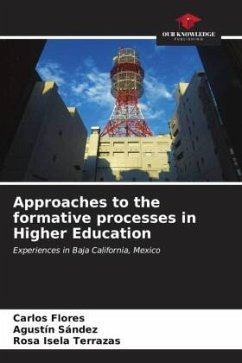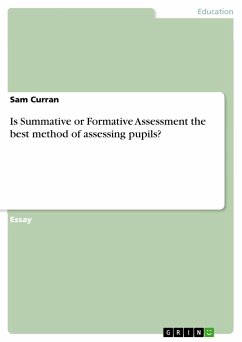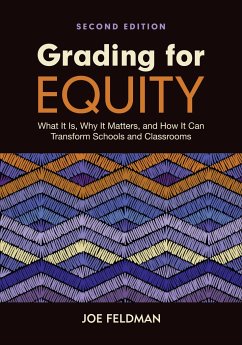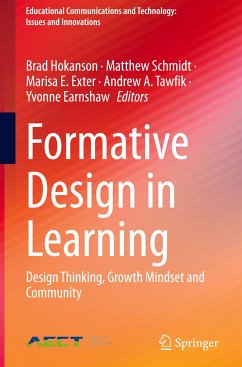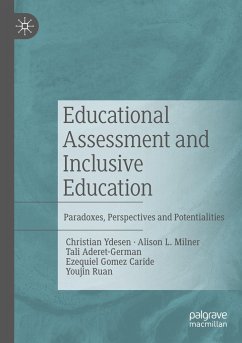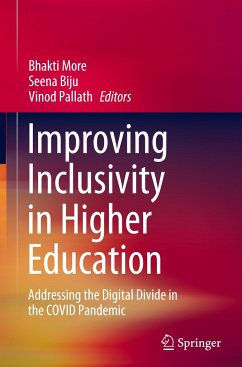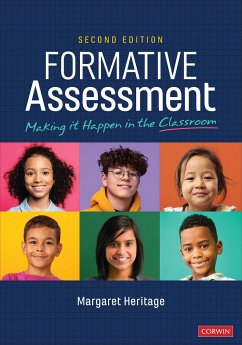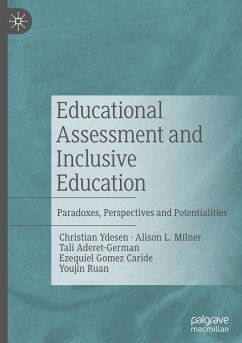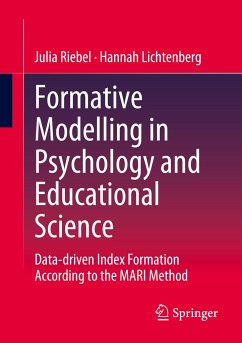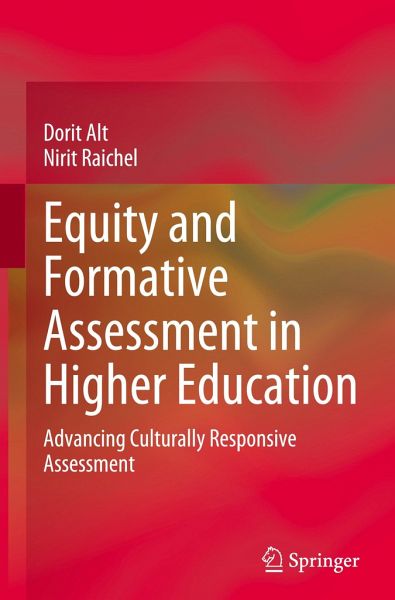
Equity and Formative Assessment in Higher Education
Advancing Culturally Responsive Assessment

PAYBACK Punkte
53 °P sammeln!
This book discusses instruction, learning, and assessment in higher education with an emphasis on several effective formative assessment tools and methods such as digital badges, reflective journals, and peer assessment used in learning environments comprising students of diverse, multicultural backgrounds. Each chapter provides a rich theoretical review, followed by a case study detailing the challenges involved in using those assessment methods in a diverse classroom, as well as practical suggestions for removing potential barriers, especially for minority students. Most of the narrated case...
This book discusses instruction, learning, and assessment in higher education with an emphasis on several effective formative assessment tools and methods such as digital badges, reflective journals, and peer assessment used in learning environments comprising students of diverse, multicultural backgrounds. Each chapter provides a rich theoretical review, followed by a case study detailing the challenges involved in using those assessment methods in a diverse classroom, as well as practical suggestions for removing potential barriers, especially for minority students. Most of the narrated case studies are accompanied by episodes, thoughts, and feelings expressed by both students and instructors throughout the assessment processes.
This book provides a valuable updated reference source for pedagogical and research purposes for a wide audience. Students, teachers, policymakers, curriculum designers, and teacher educators interested in fostering initiatives in higher education can undoubtably benefit from this book's contents, which are aimed at adapting teaching-learning assessment processes to the unique learning needs of culturally diverse student populations.
This book provides a valuable updated reference source for pedagogical and research purposes for a wide audience. Students, teachers, policymakers, curriculum designers, and teacher educators interested in fostering initiatives in higher education can undoubtably benefit from this book's contents, which are aimed at adapting teaching-learning assessment processes to the unique learning needs of culturally diverse student populations.






